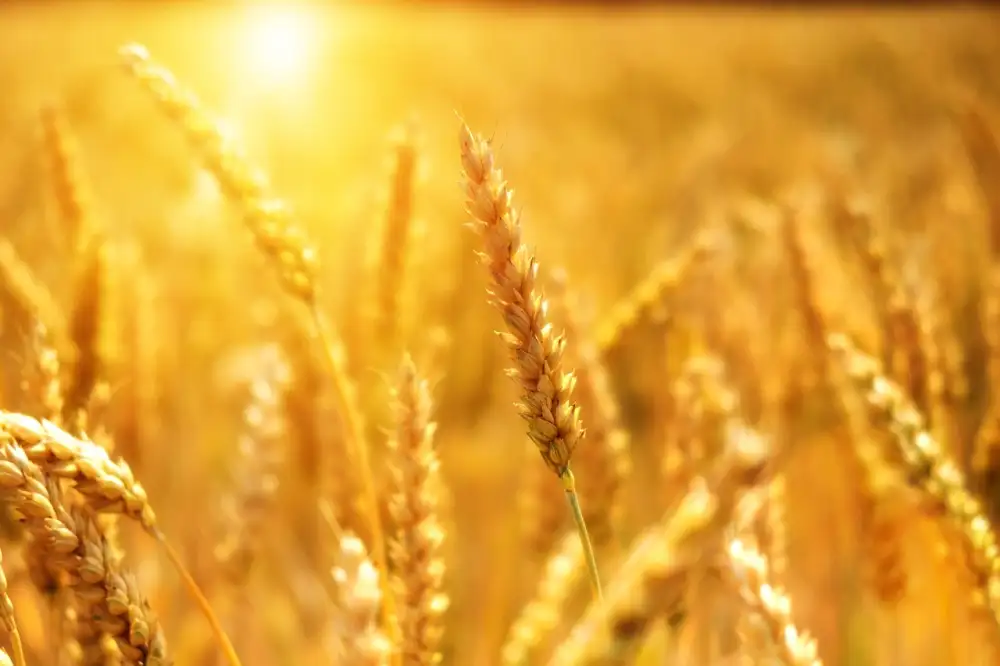Unlocking the Power of Vital Wheat Gluten: A Comprehensive Guide to this Protein-Packed Flour

Vital wheat gluten, also known as wheat gluten or seitan, is a natural protein derived from wheat flour. It is commonly used in baking and cooking as a meat substitute for its chewy texture and ability to mimic the taste of meat. This versatile ingredient is high in protein, making it a popular choice for vegetarians and vegans looking to increase their protein intake. With its unique properties, vital wheat gluten has become a staple in plant-based diets and is widely used in various recipes to enhance texture and flavor.
Production Process of Vital Wheat Gluten
Vital wheat gluten is derived from wheat flour through a process known as wet gluten extraction. The production begins by mixing flour with water to form a dough, which is then kneaded to develop the gluten network. This dough is then washed with water to remove the starch and soluble components, leaving behind the insoluble gluten protein. The gluten mass is further processed to remove excess water and dried into a powder or flakes. Finally, it is milled into the fine powder known as vital wheat gluten, which typically contains around 75-80% protein content. This production process ensures that vital wheat gluten retains its high protein content and functional properties for culinary applications.
Nutritional Benefits of Vital Wheat Gluten
**Nutritional Benefits of Vital Wheat Gluten**
Vital wheat gluten is a concentrated source of plant-based protein, containing about 75-80% protein by weight. This makes it an excellent option for vegetarians and vegans looking to increase their protein intake. Additionally, vital wheat gluten is low in fat and carbohydrates, making it a suitable choice for those following a low-carb or ketogenic diet.
Moreover, vital wheat gluten is rich in essential amino acids, particularly lysine and leucine, which are important for muscle growth and repair. It also provides a good amount of iron, calcium, and phosphorus, essential minerals that support overall health.
Furthermore, vital wheat gluten is a versatile ingredient that can be used to enhance the texture and structure of baked goods. Its binding properties make it an ideal substitute for eggs in vegan baking recipes. Incorporating vital wheat gluten into your diet can help boost your protein intake and add nutritional value to your meals.
Culinary Uses of Vital Wheat Gluten
Vital wheat gluten, a versatile and protein-rich flour, is commonly used in plant-based cooking to create meat alternatives such as seitan. Its chewy texture and ability to absorb flavors make it an excellent substitute for meat in dishes like stir-fries, stews, and sandwiches. Additionally, vital wheat gluten can be used to enhance the texture of baked goods by adding structure and elasticity to doughs, resulting in lighter and fluffier bread. Its binding properties also make it a popular ingredient in vegetarian sausages and burgers, providing a satisfying bite and savory flavor profile. Overall, vital wheat gluten offers a wide range of culinary applications for both vegan and non-vegan diets.
Health Considerations and Potential Risks of Consuming Vital Wheat Gluten
While vital wheat gluten is a valuable source of protein, it may not be suitable for everyone. Individuals with celiac disease or non-celiac gluten sensitivity should avoid vital wheat gluten due to its high gluten content. Consuming vital wheat gluten can trigger adverse reactions in these individuals, leading to digestive issues, inflammation, and other health problems. It's essential to read food labels carefully and opt for gluten-free alternatives if you have any gluten-related disorders. Additionally, some people may experience bloating or discomfort after consuming vital wheat gluten, so moderation is key for those with sensitive digestive systems. Consulting a healthcare provider or nutritionist before incorporating vital wheat gluten into your diet is recommended to ensure it aligns with your individual health needs.
In conclusion, vital wheat gluten is a versatile ingredient that can be a valuable addition to your diet, especially for those looking to increase their protein intake. It provides a plant-based source of protein and can be used to improve the texture and elasticity of baked goods. However, it is important to note that vital wheat gluten is not suitable for individuals with celiac disease or gluten sensitivity. If you do not have any gluten-related issues, incorporating moderate amounts of vital wheat gluten into your diet can be a nutritious way to enhance the nutritional profile of your meals. Remember to consult with a healthcare provider or nutritionist before making any significant changes to your diet.
Published: 09. 05. 2024
Category: Food



